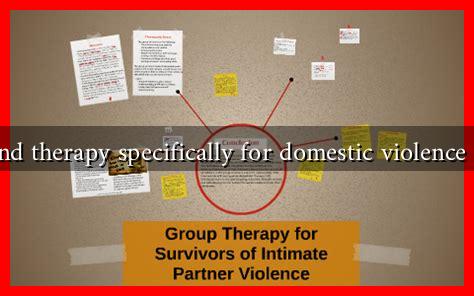-
Table of Contents
How to Find Therapy Specifically for Domestic Violence Survivors
Domestic violence is a pervasive issue that affects millions of individuals worldwide. Survivors often face unique challenges that require specialized therapeutic approaches. Finding the right therapy can be a crucial step in the healing process. This article will guide you through the steps to find therapy specifically tailored for domestic violence survivors, providing valuable insights and resources along the way.
Understanding the Impact of Domestic Violence
Domestic violence can have profound psychological effects on survivors, including anxiety, depression, PTSD, and feelings of isolation. According to the National Coalition Against Domestic Violence (NCADV), nearly 1 in 4 women and 1 in 9 men experience severe intimate partner physical violence. These statistics highlight the urgent need for effective therapeutic interventions.
Identifying Your Needs
Before seeking therapy, it’s essential to identify your specific needs. Consider the following factors:
- Type of Abuse: Understanding whether you experienced physical, emotional, sexual, or financial abuse can help you find a therapist who specializes in that area.
- Preferred Therapy Style: Some survivors may benefit from talk therapy, while others might find art therapy or group therapy more effective.
- Comfort Level: It’s crucial to find a therapist with whom you feel safe and comfortable discussing your experiences.
Researching Qualified Therapists
Once you have a clear understanding of your needs, the next step is to research qualified therapists. Here are some effective strategies:
- Online Directories: Websites like Psychology Today and TherapyDen allow you to filter therapists by specialty, including domestic violence.
- Local Domestic Violence Shelters: Many shelters offer counseling services or can refer you to therapists who specialize in domestic violence recovery.
- Support Groups: Joining a support group can provide recommendations for therapists who understand the unique challenges faced by survivors.
Questions to Ask Potential Therapists
When you find potential therapists, it’s important to ask the right questions to ensure they are a good fit. Consider the following:
- What is your experience with domestic violence survivors?
- What therapeutic approaches do you use?
- Are you familiar with trauma-informed care?
- What is your policy on confidentiality?
Utilizing Community Resources
Many communities offer resources specifically for domestic violence survivors. These can include:
- Hotlines: National hotlines, such as the National Domestic Violence Hotline (1-800-799-7233), can provide immediate support and resources.
- Nonprofits: Organizations like the Rape, Abuse & Incest National Network (RAINN) offer resources and can connect you with local therapists.
- Workshops and Seminars: Many organizations host workshops that focus on healing from domestic violence, which can also lead to therapy referrals.
Case Study: A Survivor’s Journey
Consider the story of Sarah, a domestic violence survivor who sought therapy after leaving her abusive relationship. Initially, she struggled to find a therapist who understood her experiences. After reaching out to a local domestic violence shelter, she was referred to a therapist specializing in trauma-informed care. Through a combination of individual therapy and support groups, Sarah was able to process her trauma and rebuild her self-esteem.
Conclusion
Finding therapy specifically for domestic violence survivors is a vital step in the healing journey. By understanding your needs, researching qualified therapists, and utilizing community resources, you can find the support necessary to reclaim your life. Remember, you are not alone, and help is available. For more information and resources, consider visiting the National Coalition Against Domestic Violence website.
In summary, the path to recovery from domestic violence is challenging but achievable. With the right support and resources, survivors can heal and thrive.

